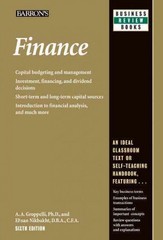
You work as a broker for a US company that imports European foods into the US. You just signed a deal with an Italian producer of olive oil. Under the terms of the contract, in three months you will receive 40,000 liters of olive oil in exchange for 100,000 euros (for the price of 2.5/liter). You are going to sell the entire shipment of olive oil to Fresh Foods Market at $3.2/liter. All cash flows occur in exactly three months. a. (3 points) Plot your profits in three months from the deal (on the Y axis) as a function of the spot exchange rate in three months (on the X axis). Consider values of the exchange rate in the range [$0.85/ to $1.35/). Label this line "Unhedged Profits." b. (4 points) Suppose the one-year forward exchange rate is $1.10/. Describe how you could hedge the risk of the contract. In the figure you used for part a) plot your total expected profits from the olive oil with forward hedge as a function of the exchange rate in three months. Label this line "Forward Hedge." Define position of the "forward Hedge" line precisely on the graph. C. (4 points) Suppose that instead of using a forward contract, you consider using options. A three-month call option to buy euros at a strike price of $1.17 is trading for $0.06/. Similarly a three-month put option to sell euros at a strike price of $1.11 is trading for $0.06/. How would you hedge your profits from the olive oil deal using option contracts? Which type of options would you use - put or call? Explain. Please be specific. d. (6 points) Compute profits from the deal with the options hedge for spot exchange rate in three months being equal to $0.85/, $1.1/, and $1.35/ (do not disregard options cost). e. (3 points) in the figure from parts (a) and (b), plot profit profile from the olive oil deal with the options hedge as a function of the exchange rate in three months. f.(2 points) Which hedge, if any, is optimal if your company is fearing that the transaction may fall through? Explain, be brief but precise. The format of your graph should be as shown below: Profit, $$ Exchange Rate $$/16 You work as a broker for a US company that imports European foods into the US. You just signed a deal with an Italian producer of olive oil. Under the terms of the contract, in three months you will receive 40,000 liters of olive oil in exchange for 100,000 euros (for the price of 2.5/liter). You are going to sell the entire shipment of olive oil to Fresh Foods Market at $3.2/liter. All cash flows occur in exactly three months. a. (3 points) Plot your profits in three months from the deal (on the Y axis) as a function of the spot exchange rate in three months (on the X axis). Consider values of the exchange rate in the range [$0.85/ to $1.35/). Label this line "Unhedged Profits." b. (4 points) Suppose the one-year forward exchange rate is $1.10/. Describe how you could hedge the risk of the contract. In the figure you used for part a) plot your total expected profits from the olive oil with forward hedge as a function of the exchange rate in three months. Label this line "Forward Hedge." Define position of the "forward Hedge" line precisely on the graph. C. (4 points) Suppose that instead of using a forward contract, you consider using options. A three-month call option to buy euros at a strike price of $1.17 is trading for $0.06/. Similarly a three-month put option to sell euros at a strike price of $1.11 is trading for $0.06/. How would you hedge your profits from the olive oil deal using option contracts? Which type of options would you use - put or call? Explain. Please be specific. d. (6 points) Compute profits from the deal with the options hedge for spot exchange rate in three months being equal to $0.85/, $1.1/, and $1.35/ (do not disregard options cost). e. (3 points) in the figure from parts (a) and (b), plot profit profile from the olive oil deal with the options hedge as a function of the exchange rate in three months. f.(2 points) Which hedge, if any, is optimal if your company is fearing that the transaction may fall through? Explain, be brief but precise. The format of your graph should be as shown below: Profit, $$ Exchange Rate $$/16







